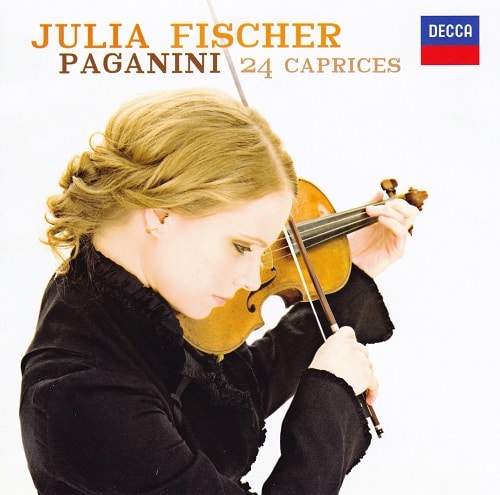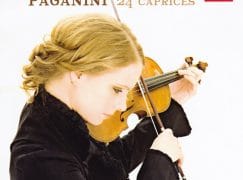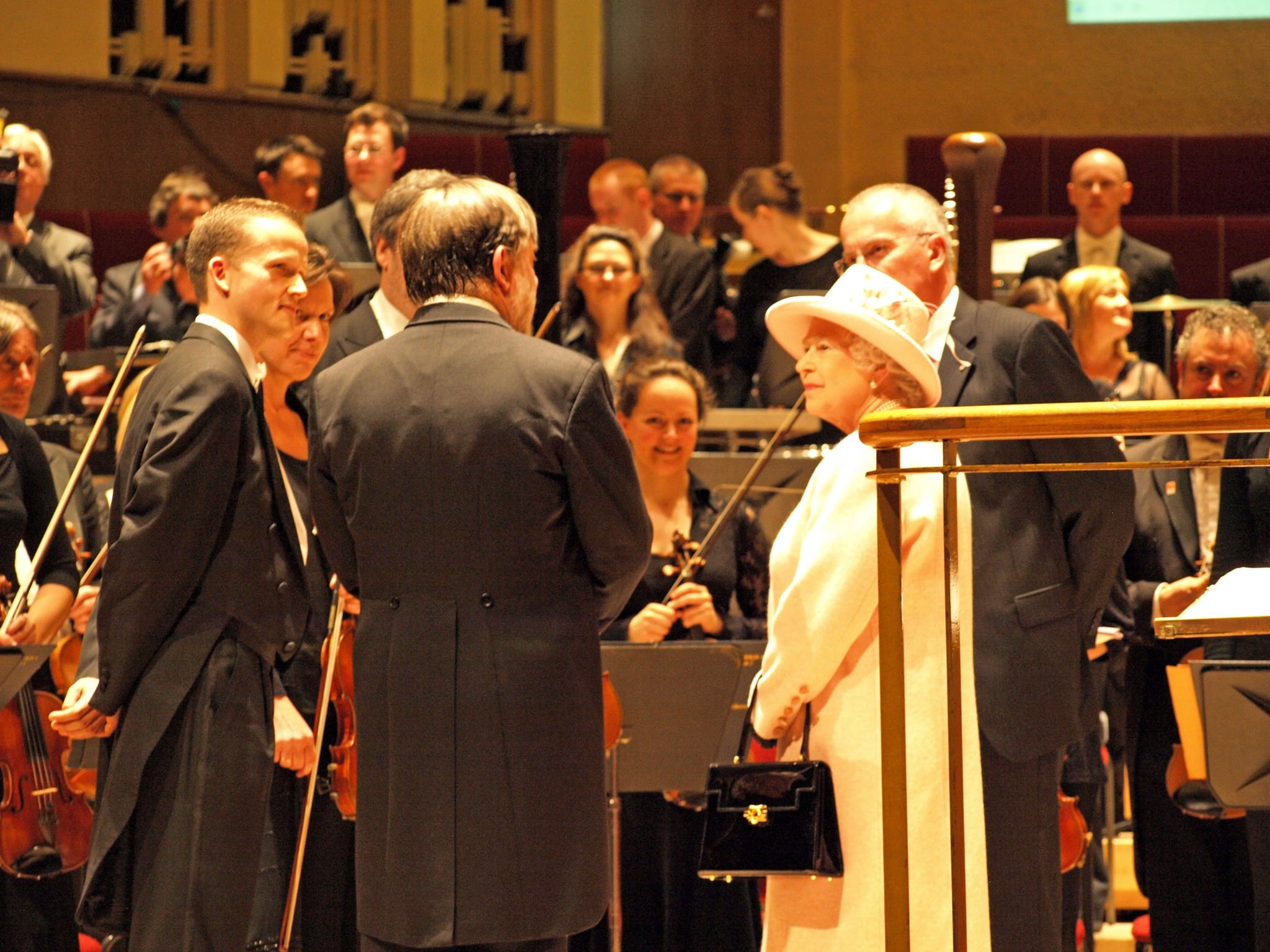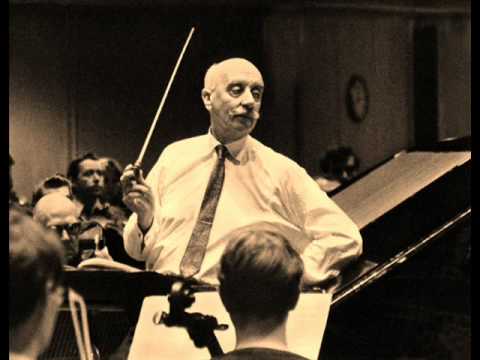German violin star joins the stop-touring lobby
mainThe thoughtful violinist Julia Fischer has lent her voice to growing demands to end orchestral touring once Civid is over and to invest more in developing local artists. She tells Van magazine:
I was never a fan of measuring the success of a career by the number of frequent flyer miles you racked up. I think it’s nuts that each orchestra thinks they need to play in New York and Tokyo every single year.
In Asia in particular, where funding is good, I could have done five tours a year. But that’s not the point. I’m in favor of cultural exchange, but it needs to be something special. If you go there every three months, it gets worn out.
It’s important for us to rebuild our identification with our “hometown orchestras.” For us in Munich to relate to the Munich Philharmonic or the Bavarian Radio Symphony Orchestra. It needs to be something special when an orchestra comes through on tour. Right now it isn’t. 20 years ago, when the Boston Symphony visited, we’d be talking about it for months.
I also think it’s wrong that conductors have multiple orchestras. It’s something I never understood. In my opinion, a conductor should be so deeply identified with their orchestra that they really dedicate themselves to it, including the city and its musical culture….
Well said.







Thank you!
This is a thoughtful and welcome statement. Connecting with the communities in which we live is vital to the well-being of the arts. Becoming part of the education process, whether young listeners or seasoned veterans, should not only be encouraged but mandatory for all performers.
The only point that is problematic has to do with conductors having more than one orchestra. This was certainly the case for much of the 20th century when the seasons were not so long. Ormandy, Szell, Reiner and so many others built their ensembles by staying in one place, leading about half of the concerts each season. That usually amounted to anywhere from 16 to 20 weeks.
Today, it is just not feasible. No orchestra, board, or public wants to see their music director for half of the year. Added to this, at least in the States, is the fact that most of our orchestras play an extended number of Pops programs, educational concerts, and community outreach during the season. Although it would be wonderful if the conductors were equally adept in these areas, they are not in the job description.
In my experience, after twenty-five years of leading just one orchestra, I found that traveling from one to the other in the weeks when I was not at home was grueling. It seemed prudent to take a second ensemble, spending between 12 and 16 weeks with each and limiting the guest conducting schedule. If I could have done more in a season, I would have gladly increased the number, but that option was never on the table.
There is one other important and reality-based point. The music director is the highest paid of all the conductors during any given season. The more weeks he or she leads, the greater the fiscal output. If it could be shown that he or she actually draws the public and donors over a longer period of time, it could be that more might be better.
“No orchestra, board, or public wants to see their music director for half of the year.”
With due respect, Maestro Slatkin, I beg to differ.
At least in terms of the “public”, I personally would LOVE to see half a year – or more – of Ormandy/Philly, Koussevitzky/Boston, Toscanini/NYP/NBC, Szell/Cleveland, or Slatkin/St.Louis.
It’s obvious to me that the more orchestras see guest conductors, the more generic they sound.
And conductors SHOULD be “equally adept in these areas” (pops programs, educational concerts, and community outreach), don’t you think? If they aren’t, why aren’t they? Is their education lacking? And shouldn’t that kind of adaptivity BE in the job description? Are you suggesting that it’s OK for conductors to be non-involved in these areas?
J. S. Bach and his various ensembles of differing sizes played almost constantly for church services, weddings, funerals, visiting dignitaries, civic celebrations, private parties, and town beer busts.
I’m not saying that you or anyone else possesses the genius (and energy!) that Bach had, but don’t you think that kind of multi-activity is something for conductors to aim for instead of the lame excuse of saying “it’s not in the job description”?
Is it really the fault of orchestras and their boards, or are conductors themselves becoming intellectually lazy and using frequent guest conducting (and guest conductors at their OWN orchestras) so that they aren’t obliged to expand their repertoire and their activities in pops programs, educational concerts, and community outreach?
It looks to me like you are actually OK with this kind of common one-trick ponyism, instead of encouraging adaptability and civic involvement by conductors.
What if you don’t like your orchestra’s chief conductor ? Then you’re stuck with him or her all season long. Plus visiting orchestras are no longer allowed. Oh joy.
Greg, you make many excellent points.
Here’s a related topic that’s never discussed. What about associate or assistant conductors? It seems that these conductors are usually relegated to educational and community outreach concerts. They’re often allowed to conduct a weekend or two of regular subscription concerts, but that’s usually it. I wonder why.
It would appear these second-in-command conductors are completely capable of conducting the major works in the repertoire. I could be wrong, but I have the impression that there were associate and assistant conductors in the past who did a great deal of conducting for the “regular” concerts (Louis Lane in Cleveland, Michael Tilson Thomas in Boston, etc.). I’m not convinced that an unknown guest conductor is a better box office draw than a familiar and well-respected local associate or assistant.
It seems a lot to be asking a conductor to be able to lead – well – sixteen programs in a season. That’s a lot of material to cover. Asking them to do more doesn’t make a lot of sense.
And while I’m not an orchestra musician, I am sure top orchestras love to have a break from their director, no matter how much they may like him/her. To start at the top, no matter how much Berlin liked Sir Simon, I’m sure they loved to have visits from Haitink, Bloomstedt, Jansons, Alan Gilbert, and others. A little variety.
Why doesn’t it surprise me that Mr. Slatkin has not responded to my comment?
Enthusiastically upvoted Especially because the final sentence in the last paragraph.
Ensuing results of those musical chairs – 1. orchestras play technically very well but have a dull sound and uneventful style. 2. top conductors are becoming more and more occupied by pr and money rather than artistic achievments of creating genuine interpretations and original sound.End result – nobody misses 99% of the conductors and their orchestras.
I’m sorry, the thread of your arguments is very hard to follow, logically and syntactically, even after multiple readings, and even when the arguments are sort of coherent, they are backed up by highly dubious claims . (Did you write this late at night?)
1) Let’s begin with the self-contradictions:
You pay lip service to the idea that it ought to be “mandatory” for performers to be “part of the education process”, but then you quickly exempt conductors, because “they are not in the job description.”
Huh? Well it should be, it’s the whole point of your opening paragraph agreeing with Ms. Fischer.
Or the reason why conductors ought to have a second orchestra, basically, to make your “guest conducting schedule” less “grueling”.
Again, double take! So take on the educational duties that you say ought to be “mandatory” so that you stay put for the entire season.
You make it sound like conductors take on a second orchestra just to make ends meet, as though international exposure and fame weren’t the primary
motivating factors.
2) Then there are the self-serving and sweeping dubious claims, to justify your position above, like: “No orchestra, board, or public wants to see their music director for half of the year.”
Really? You have evidence for this? Or do conductors drive the market and since every conductor is only working 10 weeks, orchestras and boards and the public have little negotiating leverage?
Sorry Mr. Slatkin, your comments are usually much more thought out.
No orchestral musician wants to see their music director for more than 10-16 weeks a year. Mr. Slatkin is exactly right. Familiarity breeds contempt, and particularly in a field where the conductor holds almost total control over the way music is performed, orchestral musicians need to see other conductors in order to broaden their horizons and also just to breathe a little.
Maestro Slatkin’s opinions should always carry weight. And as a witness/listener in Washington, I thought his educational concerts with the National Symphony were of great value.
Oh wow. I cannot believe I’m about to disagree with what Leonard Slatkin says, or at least part of it. Please understand that I’m partly coming from a popular culture perspective, since my own performance and teaching work is more often in musical theater than classical music. But I hope this adds a worthwhile perspective.
I’m in Washington and I have a standing joke about the place of the National Symphony Orchestra in the broader community. It goes like this: When Mstislav Rostropovich was the music director of the NSO, everybody knew who the conductor of the National Symphony Orchestra was. When you were music director of the NSO, people might not be able to spontaneously name the conductor of the orchestra, but when you told them it was Leonard Slatkin, they would say, oh yes, that’s right. When Christoph Eschenbach was music director of the NSO, people couldn’t name the conductor of the orchestra, and when you told them it was Christoph Eschenbach, they STILL wouldn’t recognize the name.
Harsh? Maybe. But my point is that people in the industry today misperceive the value – at least in contemporary American society – of appointing a globally recognized music director who by virtue of his or her other commitments cannot really spend consistent time with the orchestra. The prestige value of the name may be high within the concert hall but drops precipitously outside of it, where the buildup of recognition requires time and attention and consistent (not token) outreach efforts.
There’s a great deal to be said about appointing a truly local conductor if he or she has the numerous requisite skills for a symphony music director, although certainly with appropriate consideration for who will conduct pops concerts or other alternate series. At the risk of pointing to my own work, this is one of the issues I take up in an article I published on Medium last month called “Six things that classical music can learn from Broadway after the pandemic” if anyone wants to look it up.
By the way, I’m not sure the same dynamic applies to soloists. It seems perfectly natural for popular soloists to go on tour, and frankly, the more that American orchestras do to build their following, the more opportunity there will be for deserving soloists to become stars. As far as orchestras themselves touring the globe, I guess at some level I’ve never understood why all these tours take place, although certain natural affinities come to mind. The Israel Philharmonic touring the United States is an example, but there are many others.
PS to Maestro Slatkin: A favorite pre-pandemic memory was your return to the NSO in December 2019 with Olga Kern performing Rachmaninoff’s Piano Concerto No. 1. Thank you!
“There’s a great deal to be said about appointing a truly local conductor if he or she has the numerous requisite skills for a symphony music director”
The key point here is that despite all the deriding of conductors on SD, it is VERY rare to find someone who has the skills to stand in front of 100 highly-trained musicians – many the best in their field – and convince them that their way of doing something is better than yours. The people with those skills are rare, therefore in high demand, and they usually command good money, thank to the rules of supply and demand. So yes, it made sense for Mr. Slatkin to go off and conduct a second orchestra that needs someone with those skills, rather than to spend his time on things that others can do, and less expensively.
Finally somebody sharing my opinion especially relating to the maestros who collect orchestras. We need more artistes to speak out like this.
It is a doubled-edged sword. Touring a lot doesn’t make music, nor the experience any less meaningful. In fact, meaning and timing are two different things, although it can work synergistically. I would like to see Miss Fischer debate her point with British Musicians who are employed differently to her colleagues in Munich. From my experience, if the Munich Orchestra’s stopped touring, and really took Miss Fischer ‘s advice of rebuilding the Munich identity and culture with its people, it would fuel the narrow minded (so called patriots) with more ignorance and pride.
Miss Fischer should have just used ‘Climate Change’ to make her point (which is a far more valid and legitimate issue) instead of sparking a debate with the typical Munich Villager’s mindset.
Oh, and about conductors.. It’s wrong to be acquainted to more than one orchestra? Seriously?
Julia Fischer performs as a soloist on both violin and piano at the highest levels, as I recall. That is absolutely amazing to me, akin to becoming a star in both the NBA and NFL simultaneously. I hope orchestras heed what she’s saying.
I agree completely with what Julia Fischer has written, but she has not mentioned the most important reason why orchestral touring is wrong. For ecological reasons. Pre-COVID days on any given week you could be sure that at least three to five Boeing 777s were flying somewhere in the world with an entire symphony orchestra onboard and either cargo hold hauling timpanis, percussion, harps, cellos, double-basses and the musicians’ and conductor’s wardrobes, or often another aircraft transporting all of the instruments, along with the orchestra’s administration and donors and patrons. Orchestra ‘A’ would arrive in Beijing, after an approximately 20+ hours of flying from New York with a layover. Orchestra ‘A’, its administration, donors and guests would then be herded into 4 or more waiting buses to be delivered to their hotels, while another truck would transport the instruments and the luggage. Just imagine the carbon footprint of that one trip, not even the return! Orchestra ‘A’ then requires many buses and trucks to transport them to and from the concert hall, for rehearsals and the concert. For their concert ‘Orchestra A’ will play a Brahms’ Overture, Beethoven’s Seventh Symphony, and Brahms’ Double Concerto with two renowned soloists, themselves flown in from Germany and Australia. The carbon footprint is getting bigger and bigger. ‘Orchestra A’ gives it’s concert in Beijing and then flies on for a concert in Singapore and finally a concert in Kuala Lumpur before flying back to New York. The next week, they are followed in Beijing by ‘Orchestra B’ from Los Angeles and the entire process is repeated and the carbon footprint just keeps on growing. For their programme ‘Orchestra B’ performs a Schumann Overture, Beethoven’s Third Symphony and the Brahms’ Violin Concerto and on and on it goes, with sometimes a different visiting orchestra performing one of the exact same pieces that the visiting orchestra from one week earlier played. The next week arrives ‘Orchestra C’ flying into Beijing from London and on and on it goes and the carbon footprint gets ever bigger and touring classical music and the orchestras performing that music all added together begin to be a serious threat to the Earth’s environment and the destruction of the ozone layer in the atmosphere. Classical music, through its abusive and indiscriminate use of travel, is a real threat to our planet and that realisation will begin to be understood by more and more people and classical ensembles that abuse travel will be boycotted along with the bad image that this gives to classical music in general.
Enough is enough, for the reasons that Ms. Fischer outlined, together with the far more serious reason of the serious ecological damage that touring of classical symphony orchestras has on our planet and our environment, this practice needs to stop and replaced with “electronic touring” and then a far more appreciated and anticipated tour once every five years or more.
There is no going back and I personally will not support any symphony orchestra that tours indiscriminately, nor any soloist or conductor who is a “collector of air miles”. I am not alone in thinking this way and I even know someone who is organising a group to monitor this and make the carbon footprint of orchestras and soloists known publicly.
I suppose the saddest point you make is that you certainly are not the only one who thinks this way.
I’d just point out that there are cities, and rather musical cities at that, which greatly benefit from the touring orchestras coming through, sometimes under university sponsorship, given what the home-town “civic” orchestra has to offer. If nothing else it keeps the local orchestra on their toes!
Hear hear!
Wise and sensible. Thank you.
“I also think it’s wrong that conductors have multiple orchestras. It’s something I never understood. In my opinion, a conductor should be so deeply identified with their orchestra that they really dedicate themselves to it, including the city and its musical culture….”
Brava, brava, a million bravas, Julia!
The truly great conductors ALL had ONE orchestra.
Starting with Stokowski in Philly, and continuing through Ormandy in, yes, Philly – think Koussevitzky in Boston, Reiner in Chicago, Toscanini at the NY Phil *then* the NBC Symphony (not simultaneously!), Szell in Cleveland, Mravinsky in Leningrad (that’s what the city was called when EM conducted the orchestra there)….
Those were the days.
touring does not always work. I once saw muti with
the philly in london the hall was half empty.
Perhaps you were at the same 1984 Philly/Muti concert in London that I was at, in which the entire orchestra was sitting on the Tarmac somewhere in Northern Italy for hours, and arrived at Royal Festival Hall after the scheduled concert time. The concert did take place about an hour later than scheduled, and was a bit uninvolved, at least to my ear, probably given the circumstances. Of course, I had just flown from Albuquerque, and arrived in London at 6 a.m. myself, and was incredibly jet lagged….
Thank God, some clarity on this topic. Brava Ms. Fischer. For most large organizations, despite sometimes hefty host fees, the real costs are never fully recovered. Some point to contributions that offset these expenses, but these contributions would be better used to support local performances.
As far as these multiple, full-time appointments for music directors, they are a scam. Guest conductors? By all means. Accepting multiple full-time salaries for part-time work? Absolutely not.
Ms. Fischer is in a position to know and to advocate for change.
Editorial comment for Mr. Lebrecht: “20 years ago, when the Boston Symphony visited…” should read “Twenty years ago, when the Boston Symphony visited…” When a number begins a sentence it should ALWAYS be spelled out. Ditto when it is part of a quotation.
…………..and the SlippedDisc pedant of the year award goes to…………..
Good points, Julia! And the climate crisis… we all need to be mindful and address our addiction to flying and stop associating artist’s success with her/his flying miles. Also, I imagine the cost of the concerts would go down, which right now is so high in many US cities that it’s prohibitive to families who dont make millions of dollars. Classical music should be accessible to all and it should not be damaging our planet!
Why would prices go down? With the current availability of touring orchestras, that situation provides for more options. Limiting options to just the local band with no competitors should raise demand and prices – IF there is any demand to begin with.
US audiences are generally not there for inexpensive community orchestras, free university performances, free non-pops summer in the park. Why should touring prohibitions make any difference in the US?
Perhaps she should set an example and stop touring herself?
There is nothing better than a rich violin star, who traveled whole world and who already had many tours, to limit orchestras and the musicians from the fun of playing somewhere else, to see something more than their own city and have some more variety in life. And also some additional money from that.
Easy to say if you never worked in orchestra. Julia, give a good example and play your concerts only in Munich for the next few years.
Well said!
Hallelujah and amen to what Julia Fischer and Leonard Slatkin write. Touring may have made sense when orchestras were paid a decent amount of money for a tour – or at least enough to cover the touring expenses in full.
These days, all but a very small handful of orchestras get paid anything that resembles a decent fee for a tour, which means that the staff has to spend much more time on raising funds for the tour from foundations and their government (in the US, from rich individuals since any extra government support is a pittance).
However, for orchestras in Europe, even getting the same from the government as last year is far from certain (even in pre-Covid times) and orchestras in the US are challenged to raise enough funds to cover just musicians’ annual pension contributions and salary increases.
Stressing out the development department that is already stretched to the limit just to make some musicians happy – those that believe that a tour somehow makes the orchestra play better (which it doesn’t) or those who want the extra travel diets and fees – does not make sense.
Some orchestras SHOULD travel: Those that are perceived as representing their country by playing a distinctive repertoire that audiences would otherwise not get to hear where they live. That means playing Ives, Copland, Bernstein et al. for American orchestras on tour and, say, Elgar, Britten, and Vaughan Williams for UK orchestras. No Beethoven Symphonies (well, OK those for German and Austrian orchestras) and Brahms concerti (ditto). People get to hear those far too often already. And such tours should be limited to countries in which the orchestras’ governments plan a cultural or trade PR campaign so the touring orchestras fit in with the overall government policies and thus get the press coverage that orchestra musicians crave so much in order to somehow get “validated”. I.e., no concert tours every 2-3 years – maybe one every 5-10 years.
Currently, those truly benefitting from the touring system are the artist managers and concert hall presenters, who take a hefty fee out of the money that an orchestra’s development department sweats bullets to raise.
“I also think it’s wrong that conductors have multiple orchestras.” Sadly, good conductors are few and far between.
This makes perfect sense. A return to normal and less superficial wrapping paper.
Bravo, Julia!!
Amen!
As an orchestral player for more than 40 years, a professional chamber musician, soloist and conductor and as someone who has great admiration for Julia Fischer, for Leonard Slatkin and for Robert Houlihan, I find it disturbing that such sweeping generalizations and half-informed criticism can be very destructive in our profession. There are good reasons for touring, apart from sharing the live experience with a broader audience, it also helps to sharpen the performance skills of any soloist, ensemble or conductor. As an orchestral player, I can say with great conviction, that all of my colleagues agree, that having a chief conductor day in and day out for hundreds of services per season cannot compare with the advantages of having numerous qualified guest conductors to add the freshness of a different approach and a change of atmosphere to the artistic basis provided by the musical director.